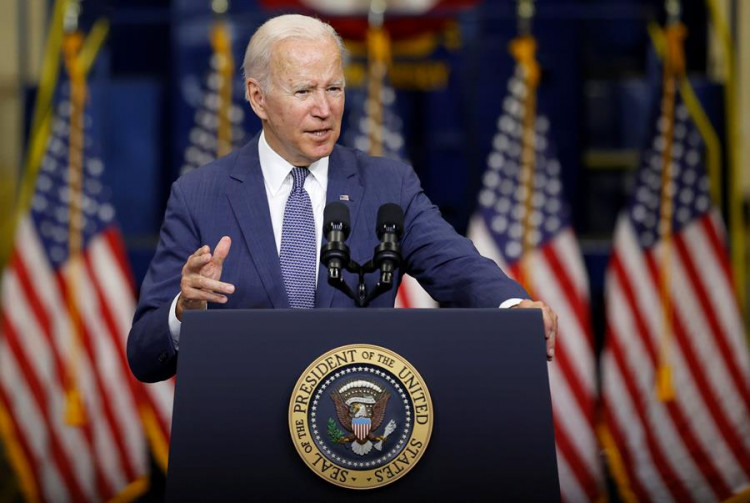President Joe Biden is poised to unveil a significant executive action that aims to provide legal protections and work permits to undocumented spouses of U.S. citizens. This move, expected to be announced on Tuesday, marks one of the most substantial immigration relief efforts since the Obama-era Deferred Action for Childhood Arrivals (DACA) program. According to sources familiar with the plan, this initiative targets those who have resided in the United States for at least ten years, utilizing an existing legal authority known as "parole in place."
The policy's announcement comes as part of the Biden administration's broader strategy to leverage funds from the Inflation Reduction Act to address long-standing immigration challenges. Treasury Secretary Janet Yellen emphasized the importance of these resources in combating abuses and ensuring a fairer immigration system. "Thanks to resources from President Biden's Inflation Reduction Act, Treasury and the IRS have the tools to stop longstanding abuses," Yellen stated in a press release.
The timing of this announcement is particularly strategic, with the November election on the horizon. The Biden administration is keen to demonstrate how it is using legislative funds to enhance immigration policies and modernize services. This move also aims to solidify Biden's stance among Democratic voters and immigration advocates, particularly in battleground states where every vote counts.
Polling data reviewed by the White House and Biden's reelection team indicate that immigration policies significantly influence voter behavior. Democratic Senator Mark Kelly of Arizona noted, "Everything is on the margins, right? My sense is it should help." This sentiment is echoed by various political analysts who believe that Biden's proactive approach could sway undecided voters, especially in states with substantial immigrant populations.
The initiative, which includes a pathway to work visas for DACA recipients, is anticipated to impact hundreds of thousands of individuals. It not only provides deportation protection but also opens avenues for permanent residency and citizenship. This development could resonate deeply within Latino communities, potentially bolstering Biden's support among a demographic crucial to his reelection bid.
Biden's approach to immigration reform contrasts sharply with his recent restrictive measures to limit asylum processing at the U.S. southern border. This dual strategy highlights the administration's attempt to balance enforcement with humanitarian relief. While Republicans have criticized the additional funding and labeled it as wasteful, Democrats argue that these measures are essential for creating a fairer immigration system.
The "parole in place" program aims to address a significant loophole that has allowed complex business partnerships to shift money and avoid taxes. IRS Commissioner Danny Werfel highlighted the importance of this initiative in ensuring compliance and fairness. "In the audits we're doing today, we are seeing systemic use of basis shifting where there is no economic substance to the transaction. That is not allowed," Werfel explained.
Despite anticipated legal challenges from Republican-led states and opposition from lawmakers like Senator James Lankford, the Biden administration remains committed to pursuing these reforms. Lankford has been vocal about his concerns, stating, "Biden's border is still in crisis and his latest idea is amnesty. This will invite more chaos." Nonetheless, Biden argues that executive actions are necessary due to Congress's failure to pass comprehensive immigration reform.
The new policy is expected to provide significant relief to undocumented immigrants married to U.S. citizens, a subset of the estimated 11 million unauthorized immigrants in the country. The administration's plan also includes streamlining processes for DREAMers and other undocumented individuals to obtain temporary visas, further demonstrating Biden's commitment to immigration reform.
As the administration prepares to announce these changes, the focus will also be on the broader implications for U.S. economic stability and social equity. The "parole in place" program has the potential to reshape the lives of countless families, ensuring they can live and work in the U.S. without fear of deportation.






